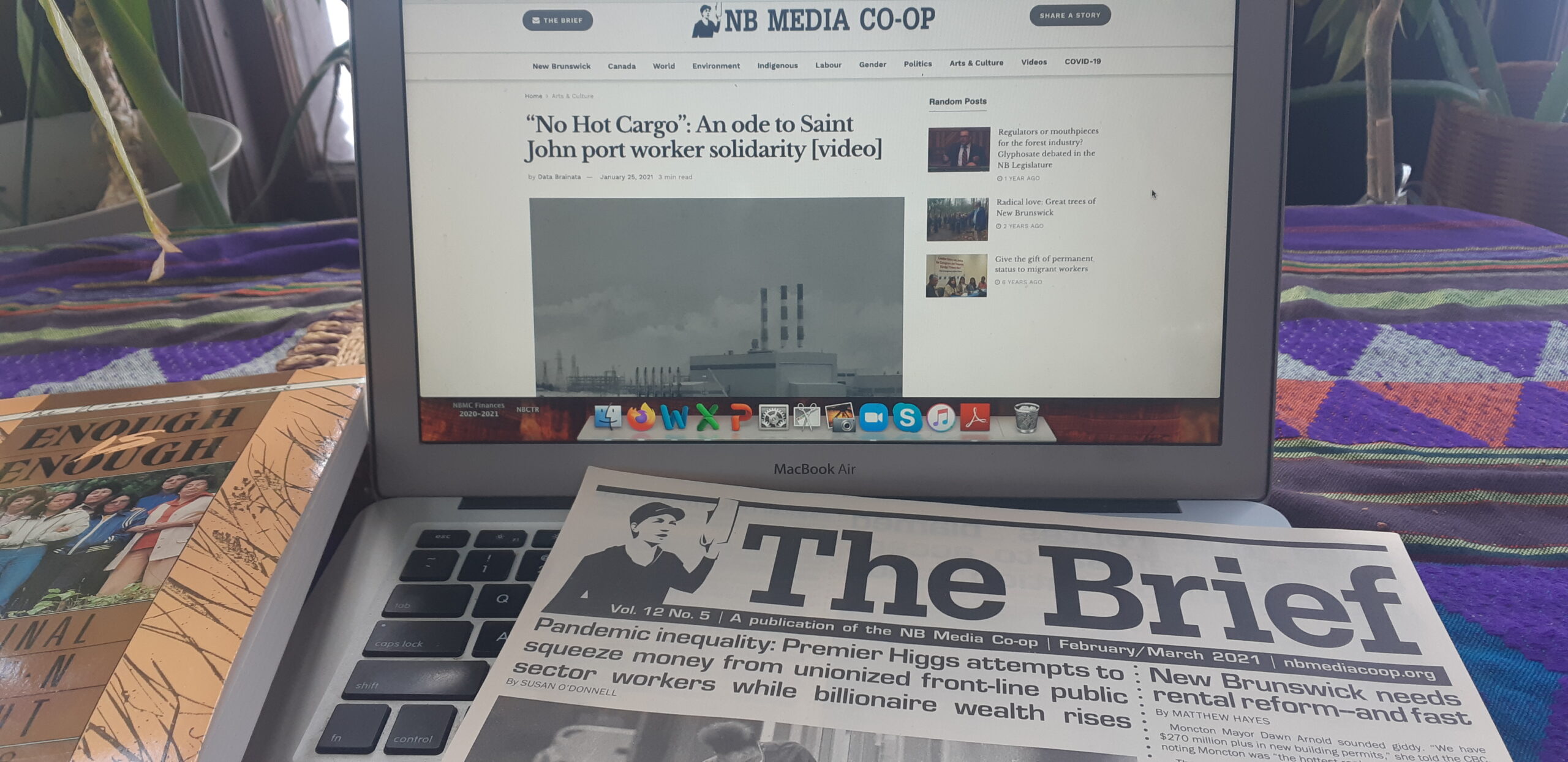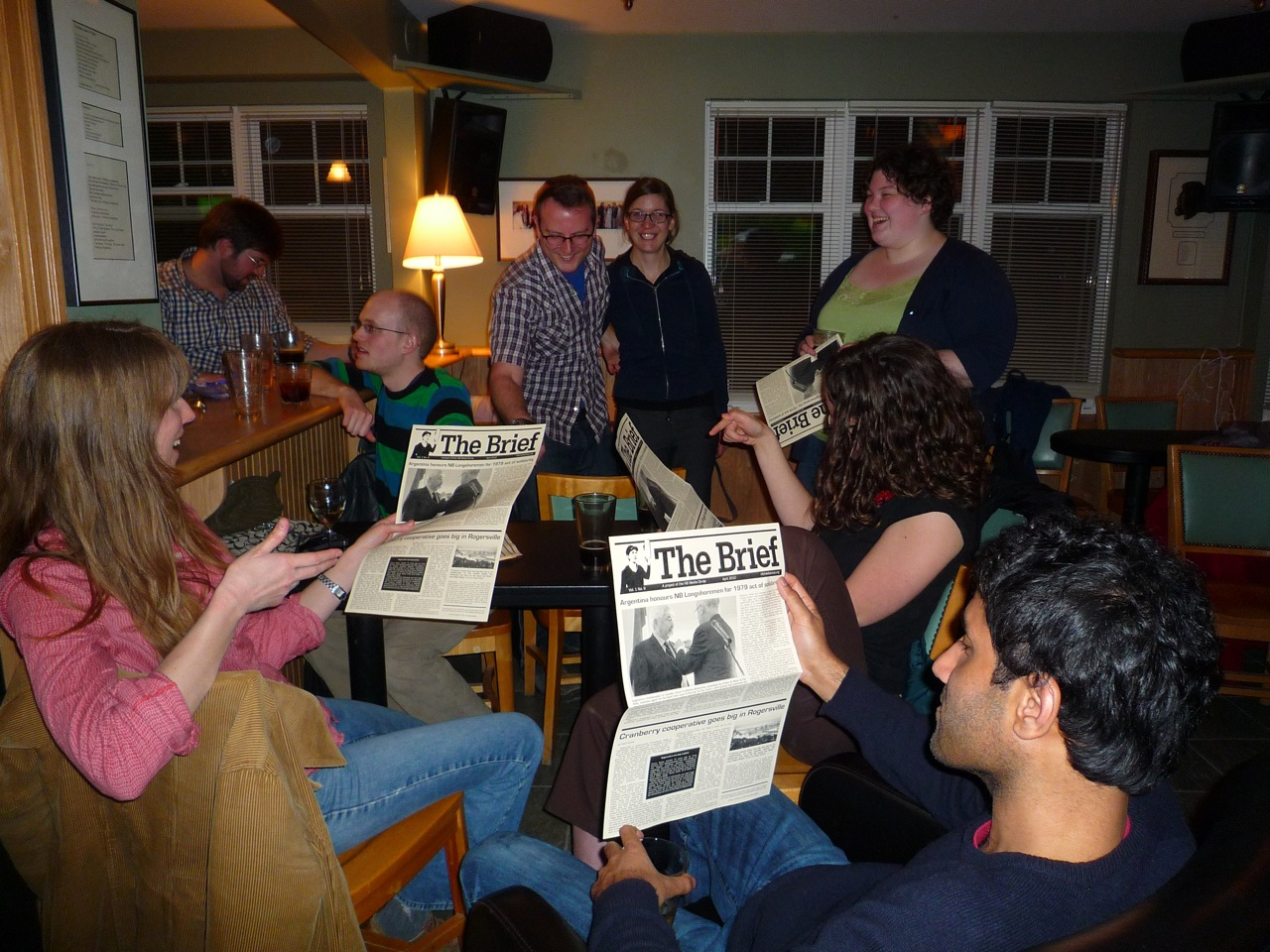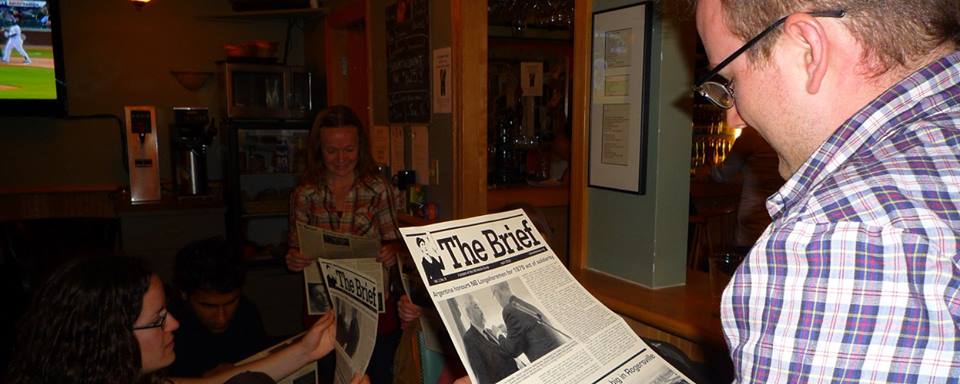the media co-op model can offer readers what for-profits can’t

In the wake of layoffs at Overstory Media earlier this year, many journalists wonder if there is still hope in emerging business models to revitalize the industry. Besides freelancing or small nonprofit newsrooms with few editorial staff, there are not many ways to be a career journalist. While journalism is vulnerable to corporate interests, some are asking if the solution is to look beyond the private sector.
Sandy Hudson, the founder of the Black Lives Matters presence in Canada and Nora Loreto, editor of the Canadian Association of Labour Media are Canadian activists and writers who take a critical look at the Canadian political landscape through their podcast, Sandy and Nora Talk Politics. In an episode on January 24, 2023, “The descent of media into propaganda,” they discuss the harmful cycle many newsrooms have fallen into. While trying to meet the ever-increasing demands from advertisers to keep eyes on their content, journalists are rushed to churn out as many articles as possible. The consequence, Hudson and Loreto find, is that long-term, consistent investigations into the issues important to Canadians are no longer a priority.
“To make those types of connections, and that sort of analysis, and to have those sort of follow-up stories over and over again, takes time and takes research. [Which] increasingly, in a super profit-[driven] model, it doesn’t work,” said Hudson.
Of the solutions proposed to “save Canadian journalism,” media cooperatives are gaining favour as the way to go. Publications from Prairies-based, leftist outlet Briarpatch magazine to Harvard University’s “online reporting enterprise,” Nieman Labs, have highlighted media co-ops as solutions to the corporate interests affecting editorial independence.
One media cooperative that has garnered attention in independent Canadian media spheres, is the New Brunswick Media Co-op. This crowd-funded and volunteer-run outlet was born out of New Brunswick activists’ belief that the J.D. Irving Ltd. media monopoly in the province stood in the way of truly community-based, adversarial journalism.

“Up until just about a year ago, most of the media was owned by J.D. Irving. We can’t expect the same company to report on […] the pollution from their oil refinery in ways that will harm their profits,” said founder and coordinating editor at the NB Media Co-op, Tracy Glynn.
To Glynn, the nature of media cooperatives, and their collective ownership model, makes them nearly entirely accountable to their readership, therefore “more democratic.” The prevalence of freelance and volunteer journalism has been pointed out as a tragic symptom of the journalism industry’s shrinking profits. Though this may be true, Glynn also looks at it as a way for people both with and without backgrounds in journalism to tell the stories important to their communities.
Another notable characteristic of Canada’s volunteer-run media is being transparent with their political slants. The NB Media Co-op, for instance, was born from progressives from all over New Brunswick joining together to “fight the anti-worker sentiment found in corporate media,” according to its website’s history page.

To some, this is a mark against the objectivity of these outlets, but to Sarah Nafisa Shahid, a member of the editorial board for activist journalism magazine Spring, politics and editorial objectivity can coexist.
“Being partisan does not mean that we are not objective. Being objective means that [our reporting] is evidence-based and we are dependent on facts and data. [What we do is start] off from a framework where we understand that there is a power dynamic that already exists in our system, where the oppressed is disproportionately voiceless.”
Glynn notes that while NB Media Co-op receives many pitches for commentary or analysis pieces, they encourage their regular writers to write investigative articles when they can. The NB Media Co-op believes that all people can be journalists, and it is their responsibility to provide those interested in volunteering with the skills to tell the story they want to tell.
Here lies one of the pitfalls of the media cooperative model. Similar to their registered nonprofit counterparts, there are seldom enough funds to bring on many permanent, full-time paid staff positions. Nonetheless, the NB Media Co-op’s work continues to be sustained by about 60 active volunteer and one paid part-time staff member who is saddled with managerial responsibilities. The co-op has also been able to bring on a paid video producer, and Glynn adds that the team hopes to extend the producer’s contract for another year.
“I think people are wanting to consume better media and we can all be there to meet that demand,” said Glynn.
About the author
Sophia de Guzman is a fourth-year journalism student at Toronto Metropolitan University, but she has roots in California and British Columbia. Sophia hopes to approach her interests in business, technology, and labour with a social justice lens. Sophia currently works at the CJRU as a show coordinator and producer, alongside interning at Ricochet Media. In her off time, she likes to hang out with her dog and is an avid NPR enthusiast.


